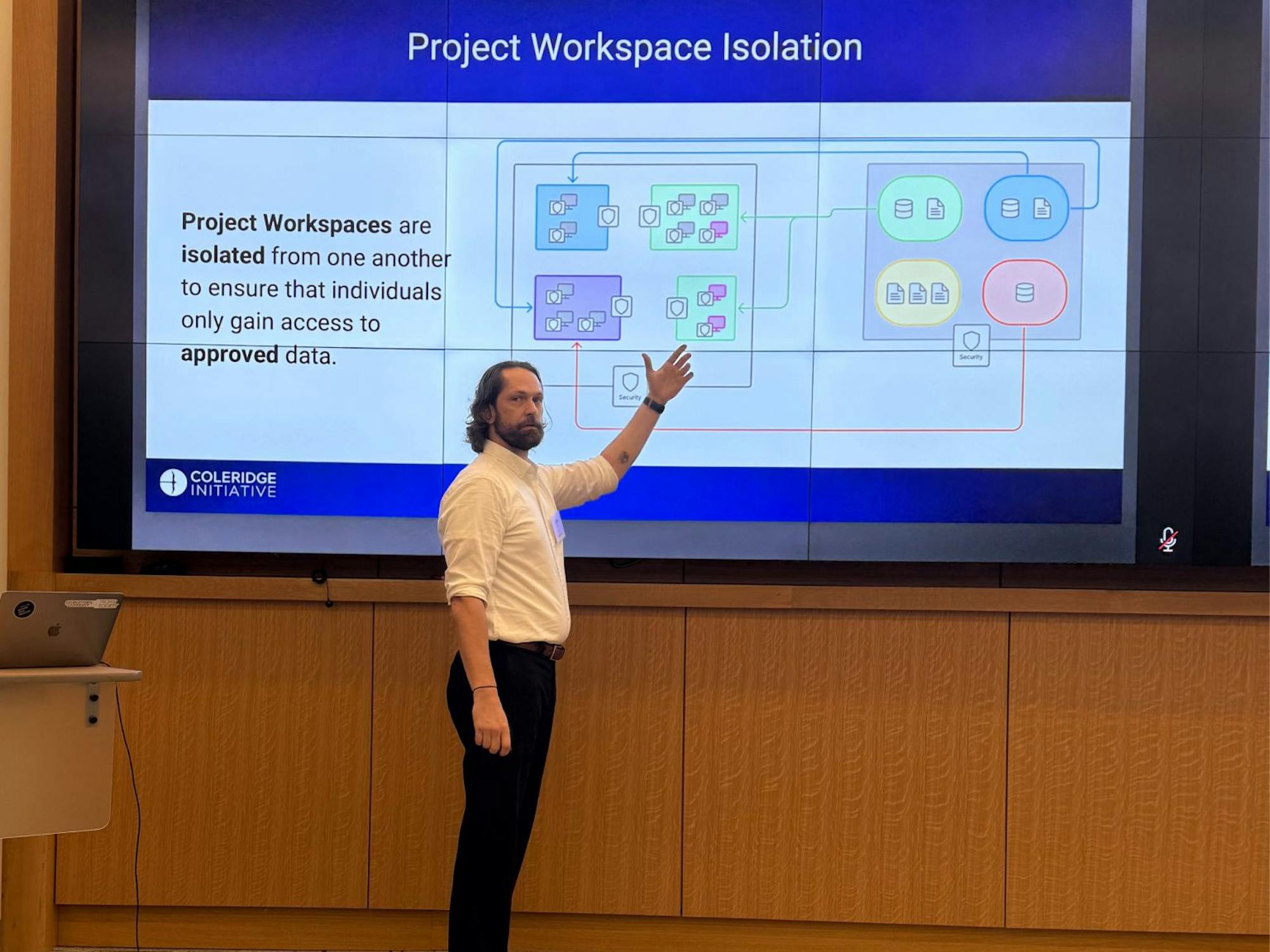
01 Jul 2025
In the news
The State of Administrative Data: ADRCon 2025
On June 24-25, leaders and researchers from across the administrative data community gathered in Washington, D.C. for the first ADRCon 2025: Data for Public Good conference. Co-hosted by Georgetown University’s Massive Data Institute, Mathematica, and Northwestern University’s Institute for Artificial Intelligence in Medicine, ADRCon offered a powerful platform for collaboration and insight-sharing between attendees who came from academia, government, and the private sector.
Coleridge Initiative CEO, Ahu Yildirmaz, joined the mainstage panel, "The Future of Administrative Data: Charting a Path Forward in Uncertain Times," alongside Richard Hendra, Director of the Center for Data Insights at MDRC and moderator, Michael Lenczner, CEO of DARO. The conversation tackled the evolving administrative data landscape, influenced by disruptions in federal data access and the emergence of state-led innovations. Yildirmaz shared how across these changes, Coleridge is helping public agencies move from fragmented systems to secure, collaborative infrastructure that delivers real-world impact.
In addition to the mainstage discussion, Coleridge's Vice President of Data Enclave Operations, Jonathan Mills (pictured), presented as part of a session on infrastructure and strategy. He gave a deep dive into Coleridge's "5 Safes" framework that underpins the Administrative Data Research Facility (ADRF). The presentation highlighted how the ADRF platform enables security, access, and governance to facilitate multi-agency collaboration without compromising trust or compliance.
The conference also featured Coleridge’s work on real-time labor market insights in a session focused on tools for public services. Using the Unemployment-to-Reemployment Portal as a case study, Yildirmaz detailed how secure, tiered-access dashboards are helping states understand unemployment trends and service gaps at a granular level and how Coleridge is working to scale these tools across additional states and geographic regions.
ADRCon 2025 reaffirmed what we at Coleridge know: administrative data, when responsibly linked and thoughtfully applied, is one of the most powerful tools we have to improve public policy. This current moment is a building moment for our field. We have an opportunity and a responsibility, to create data infrastructure that is trustworthy, usable, and truly impactful across sectors.